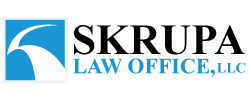Chapter 7 and Chapter 13 bankruptcy are two different ways to file for bankruptcy. Skrupa Law Office, LLC in Omaha and Lincoln wants you to know the differences between the two so you can know which is better for you and your family.Chapter 7 may be the better route to go because it is faster, your eligible debts will be completely dissolved, and you are more than likely able to keep all your property. Not everyone qualifies for Chapter 7, though. To qualify for Chapter 7 bankruptcy, your income must be below the state median of a family of the same size or if your income is above the median but your income will not suffice to work out a repayment plan. However, Chapter 13 gives you a chance to pay a portion of your debts back under a structured repayment plan. Chapter 13 is the best option to stop repossessions and foreclosures. Read below for the differences our team at Skrupa Law have put together for you.
Chapter 7 Bankruptcy
- Typical Chapter 7 bankruptcy cases are open and shut in 3-6 months. The debtor will come out debt free on the other side except for bills like child support, car payments (if you decide to keep the car), court fees, some tax debts, mortgage (if you decide to keep the house), student loans, etc. For more information on non-dischargeable debts contact the lawyers at Skrupa Law.
- Not everyone is eligible for Chapter 7 bankruptcy. If you have disposable income to fund a repayment plan after paying regular living expenses and bills like your house, car, child support, etc., then you will likely not be able to file Chapter 7; you may have to file Chapter 13 instead.
- In most cases, debtors will not lose their personal property when filing Chapter 7. You will get to keep the necessities unless you have used that property as collateral on a loan. In that case you have to continue to pay on the loan or surrender the collateral.
Chapter 13 Bankruptcy
- If you are not eligible for Chapter 7 bankruptcy then your other option is to file for Chapter 13 bankruptcy. Under Chapter 13 Bankruptcy you have to pay back at least a portion of your debt.
- When you file Chapter 13 you must complete a 3 year to 5 year payment plan. At the end of the payment plan, any debts that are not paid off will be discharged. If you do not complete this plan your debts will not be fully discharged and you will still be responsible for paying them. At Skrupa Law, we know that unfortunately in reality many do not or are unable to finish the plan and they have to begin the whole process again.
- However, with Chapter 13 you also get to keep your property like with Chapter 7 bankruptcy.
- Many choose Chapter 13 because it allows you to catch up on debt like mortgage and car payments, thereby allowing you to keep the property. This is debt that would not otherwise be discharged in a bankruptcy without surrendering the property.
Contact Skrupa Law Today at (402) 512-6094 in Omaha and (402) 464-3311 in Lincoln
At Skrupa Law we want to help you get the best settlement as possible when filing for bankruptcy. Contact us today for any questions you may have or to see if you qualify for a Chapter 7 or Chapter 13 bankruptcy. Our number for our Omaha office is (402) 512-6094 or in Lincoln at (402) 464-3311. We are here to serve you and help get you back on your feet.


